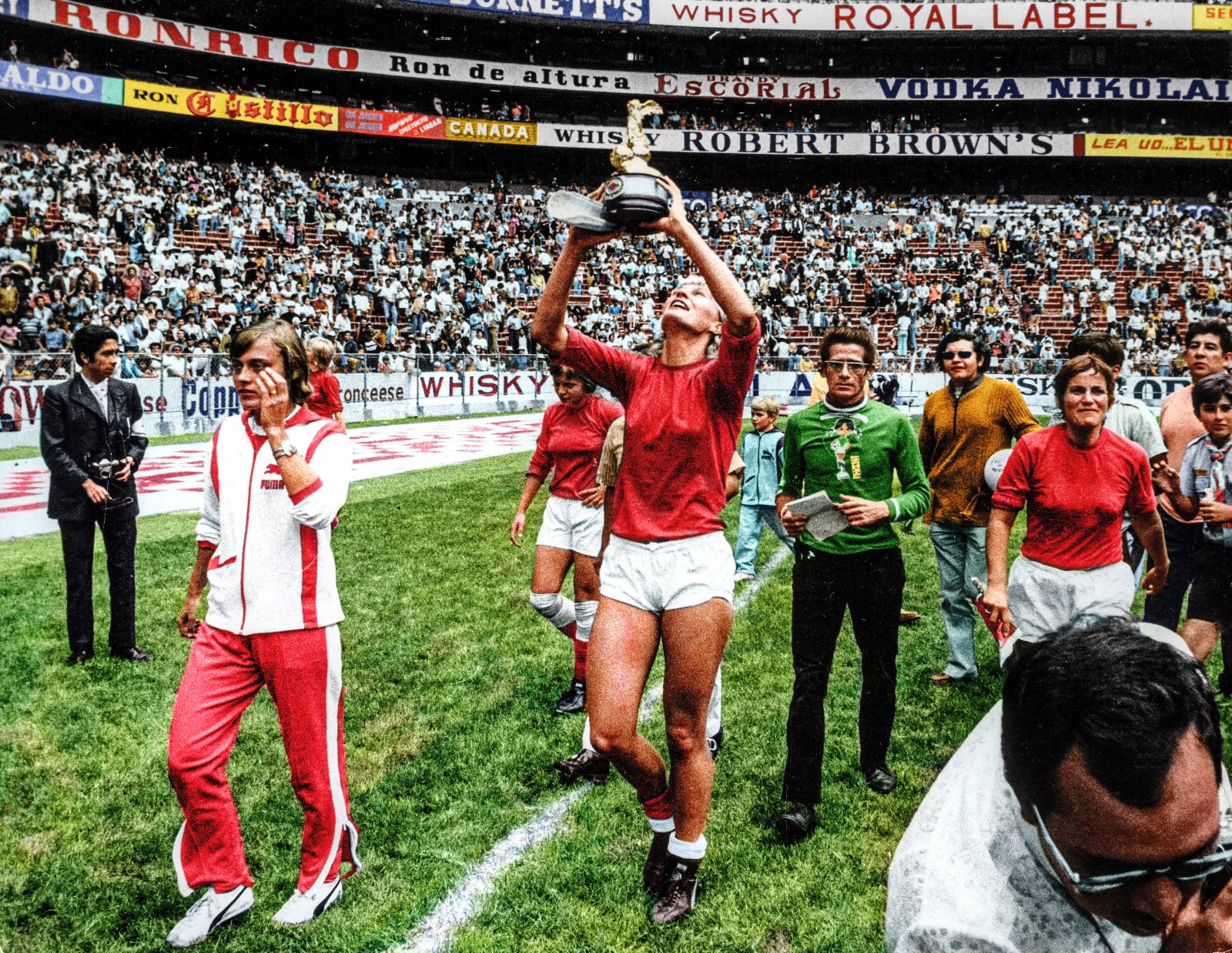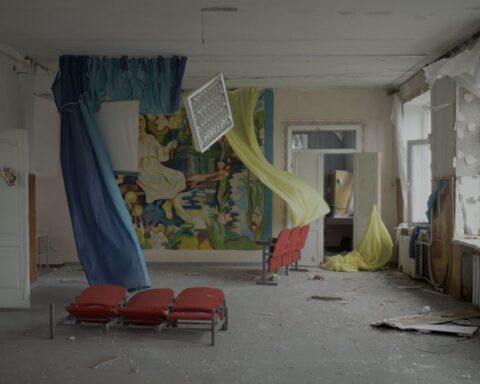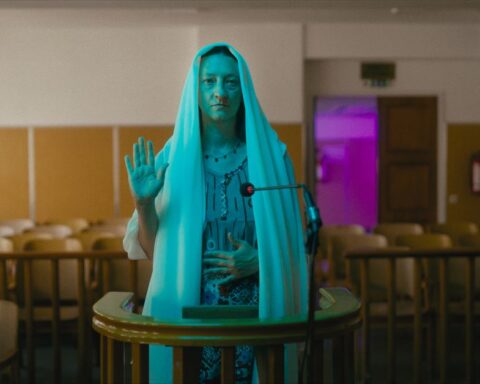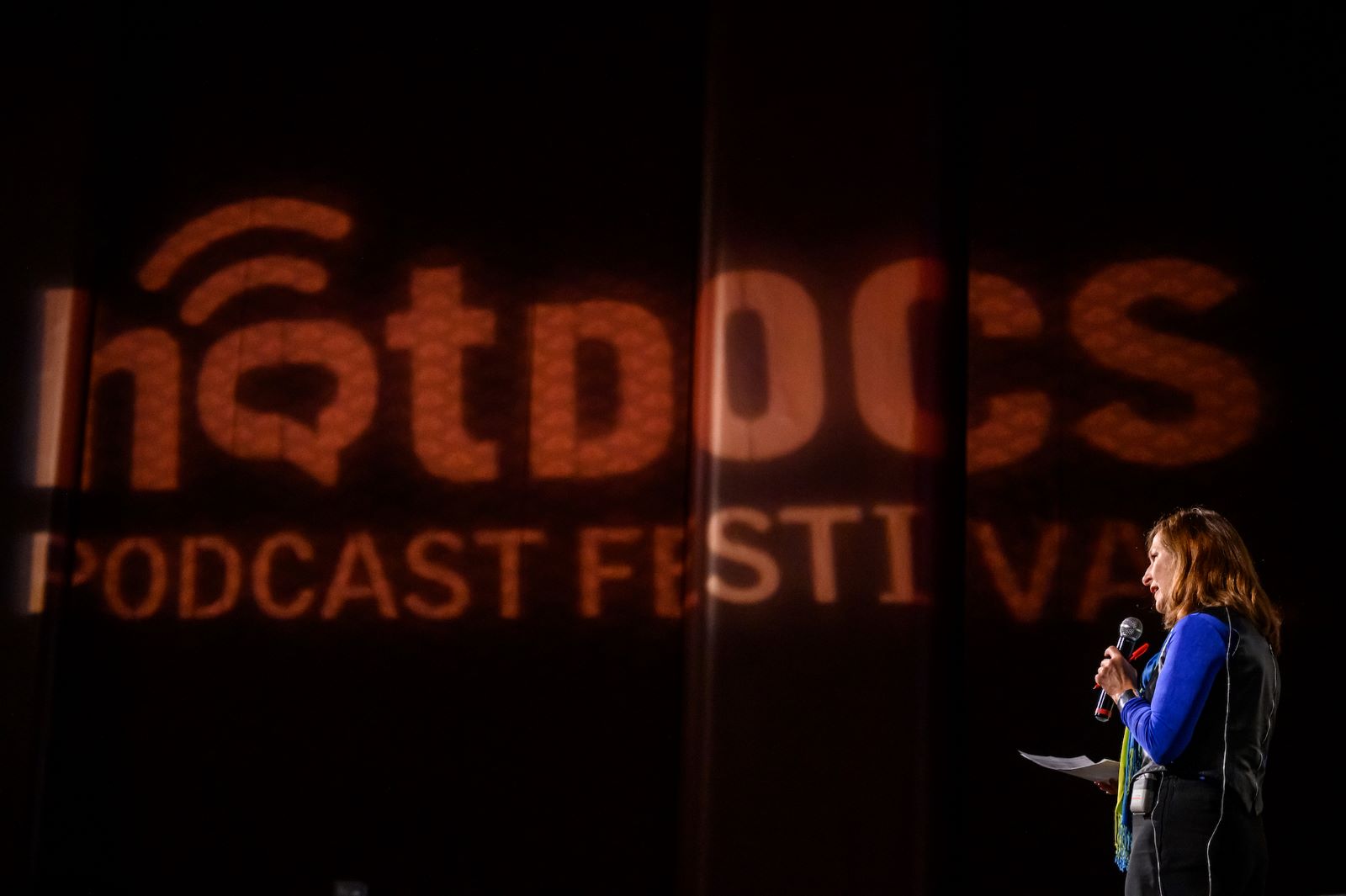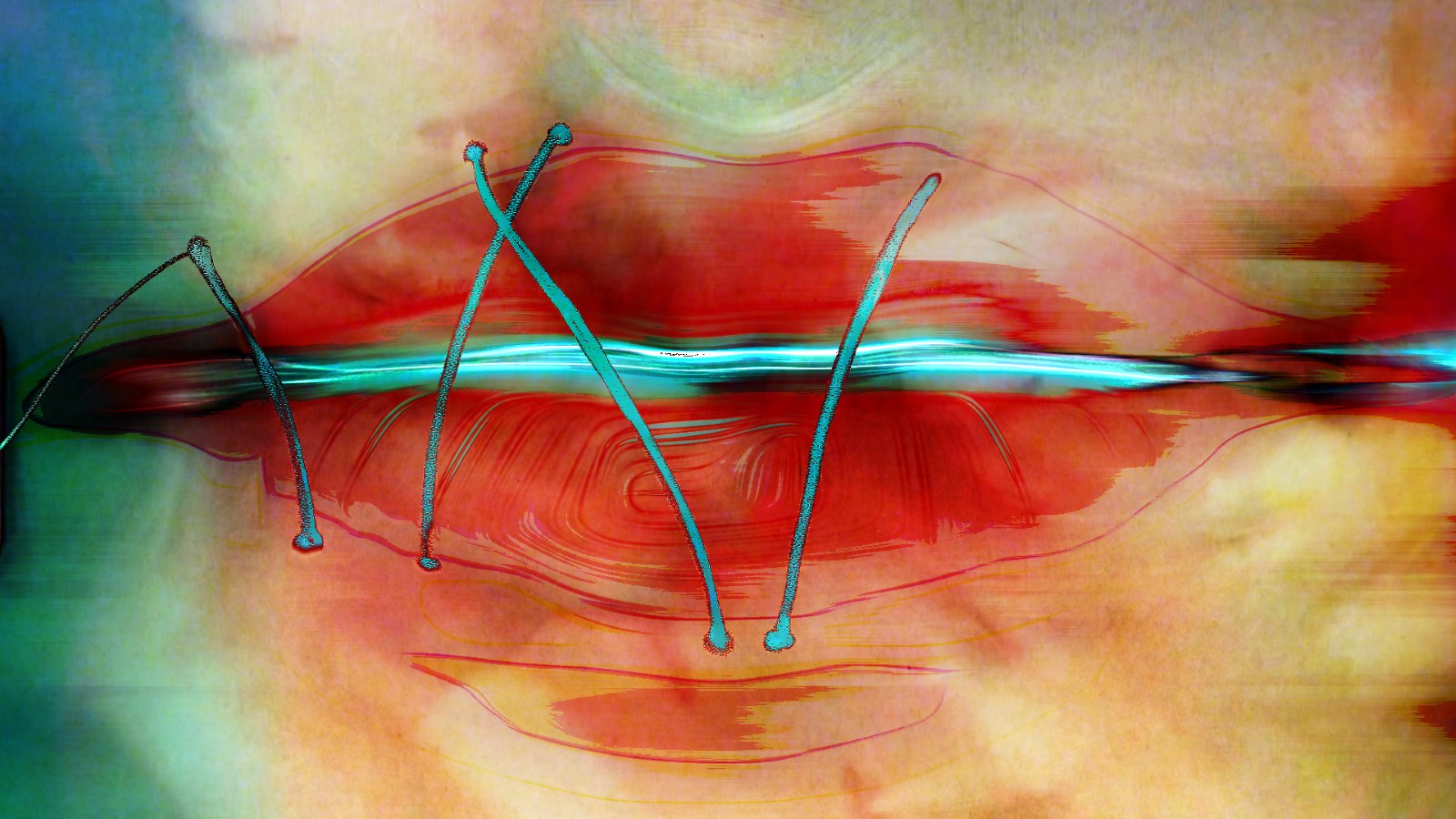In the summer of 1971, teams and fans gathered from around the world to Mexico City and Guadalajara for a tournament dubbed the Women’s World Cup. Despite protests by FIFA, the nominal organizer of international soccer, the tournament inspired high-calibre play, as six teams from Europe and the Americas battled—and occasionally brawled—on the pitch. There was massive media attention in Mexico, sponsor placards were festooned across every spare space in the stadium, and the players were treated like royalty as they visited local establishments.
The final match saw upwards of 110,000 people in the stands: a record for a women’s sporting event that still stands to this day. Despite how ground-breaking this event was, the story of Copa ’71 was soon forgotten, relegated to “unofficial status” by both the governing bodies and several local football federations, with even the players themselves giving up any dreams of continuing the momentum of their playing careers.
This remarkable tale is the subject of Rachel Ramsay and James Erskine’s Copa 71, the opening-night selection of the Toronto International Film Festival’s TIFF Docs slate. British filmmaker Erskine has had a long career, including the acclaimed Billie (2019), which traces the complicated, compelling story of iconic singer Billie Holiday, and The End of the Storm (2020), about the 2019–20 season of the Liverpool football club. Rachel Ramsay served as producer on the latter and other projects. Copa 71 marks her directorial debut. The result is powerful film that recovers a lost history of women’s sports and gives the Copa ’71 players the recognition that they and other women athletes deserve.
POV spoke to Ramsay and Erskine ahead of the film’s world premiere at TIFF.
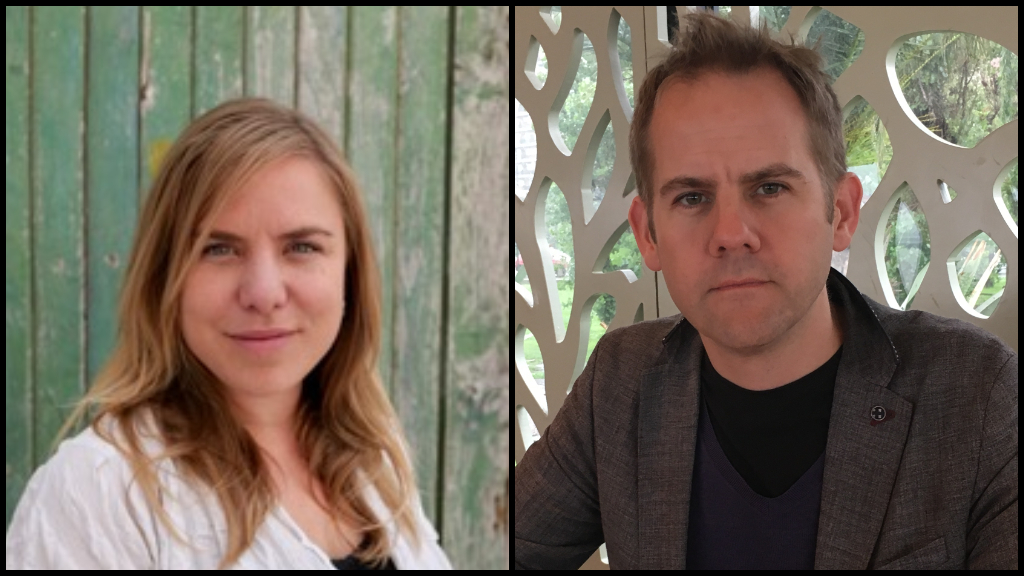
POV: Jason Gorber
RR: Rachel Ramsay
JE: James Erskine
POV: How did you first hear about this story that’s been hidden from the public eye?
RR: Our producer Victoria [Gregory] came across the story. Her husband actually heard a snippet of an interview with some of the England players on the radio about four years ago. He knew we had been interested in making a feature doc focused on sport for a long time. When we started, there wasn’t even a Wikipedia entry on this tournament. Maybe this event was a bit of a myth; maybe the memories had grown out of something that was a lot smaller. We started talking to people who were involved and realised that their stories were starting to match up. It just wasn’t in any official records. That’s when we got started.
POV: How challenging was it to find the footage?
JE: It was a challenge. Literally, we were still piecing together fragments until about two weeks ago. No great vault had it. We still haven’t found tapes of some matches. We’re hoping to find them sometime in the next year, for the sequel. [Laughs.] Searching for footage was laborious.
POV: Has anyone else been trying to bring attention to this event?
RR: In terms of the history of women’s football, there’s been a small but ferocious group of people—historians, campaigners—who’ve been trying to raise attention to the fact that women’s football didn’t start in the 1990s, but it really has been around from the 1890s. The story was very effectively silenced by different organisations.
JE: There was one person, Professor Jean Williams, who was a consultant on the film. She had researched quite a lot about this and written extensively about the history of women’s football.
RR: In each country, there was somebody who had been doing some digging. What we were able to do with the help of all of these people was bring that story together for the first time and provide an international perspective with a collective voice. The similarities of these women jump out at you, but not until you put them all together in one space.
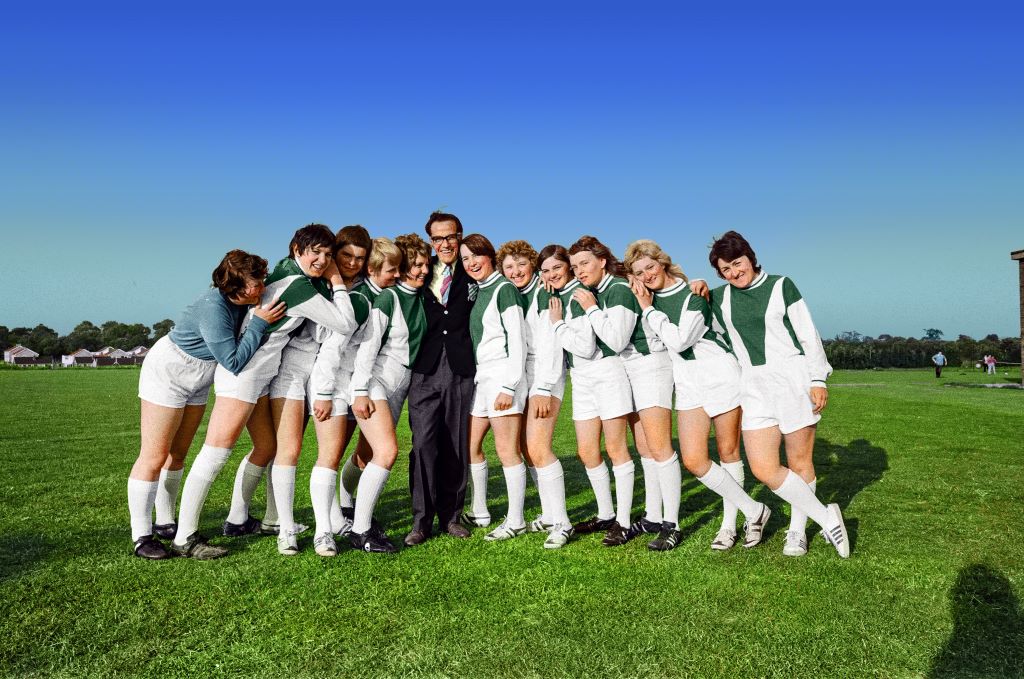
POV: Why is sport a vehicle for such great drama?
JE: Great drama is about having conflict, and sport is a natural auditorium where we see conflict. We see people playing out their dreams, their nightmares. Society has many people who are thinkers and writers, but it has many more people who are players and who articulate themselves through what they do rather than what they say.
RR: I think that, given that there are so many different ways of expressing ourselves, whether through art, through music, or through sport, it’s great to be able to use film to actually say, “This is how these women are.”
POV: How do you speak both to the obsessive fan and to someone completely new to the game?
RR: You could swap the word “football” out throughout the film, and it could represent so many different things to people who felt displaced or disenfranchised.
JE: We avoid making anything more complicated than seeing a running race. We edit the footage together in a way that’s for the connoisseur but tells the story in a way that’s accessible. People can be passionate about it without having to know anything about the sport.
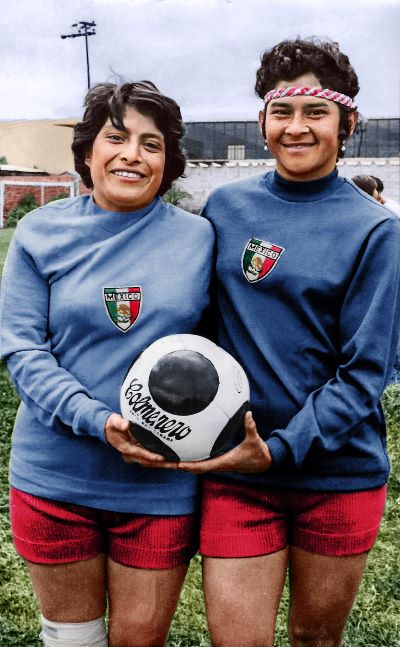
POV: There’s a cynical read that this tournament had more to do with a bunch of Mexican promoters wanting to fill the stadiums and create something for the media than staging a true sporting event.
RR: But I don’t think that’s cynical. I think it’s a positive thing! What was recognised by these Mexican businessmen was that this was something that could be successful because they weren’t part of the football establishment. They didn’t have the fundamental belief that women should continue to be excluded from the men’s growing sport.
JE: Sporting organisations like to imagine themselves like they’re presented by God, whereas in fact most of them are private enterprises. The Tour de France was invented to sell newspapers. FIFA and the World Cup itself are designed to make money. The Champions’ League is designed to make money.
POV: Were there specific films that provided direction or inspiration?
JE: I don’t think there were specific films, but we had a mantra that we tried to stick to: If we are going to make a story, what matters is the third act. We wanted to make enough space within the film that you could follow the arc of elation, but that there was a proper period of time after that where you could see that this tournament was a solution, but one that was rejected. The second thing, which is what highly successful docs like Searching for Sugar Man [2012] do, is to focus on emotion. We can understand the facts, but we wanted to make sure that we were charting the emotional journey of these characters for the audience.
POV: Let’s talk about those Williams women who apparently are pretty good at tennis. What were they like as collaborators and executive producers?
RR: Serena and Venus have been very keen to commit to activism on a wider level, and they’ve been looking for stories to back. We can extrapolate from this one story that there are other stories that no one knows anything about. If we’re going to empower future generations, you want to embed that in a solid history.
JE: They’re obviously two of the greatest tennis players of all time. They’re at the elite, but what they see of the world is that it should be inclusive. It’s not about talent; it’s about opportunity.
RR: The Williams sisters put their time and resources into football: by investing in the Angel City club in LA, and then in projects like our film. They’re willing to back what they’re saying.
POV: Rachel, can you talk about the transition from producer to director?
RR: It felt like a natural transition. It’s not a branding but a “multi-skill set” that we [producers] have, which allow us to create something like this. Collaboration is such a huge part of filmmaking. We shouldn’t forget to mention our incredible researchers and editors and archive producers, who were all involved in making this film. Each uses different parts of their own language and understanding of how to piece the whole together.




